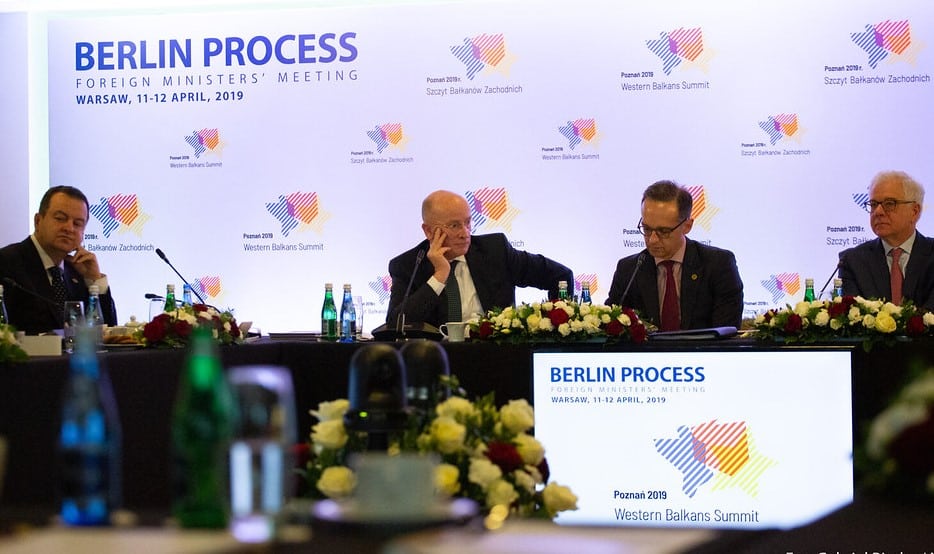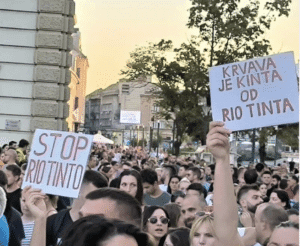On the 5th of July, representatives of the Berlin Process met for a summit in Poznan, Poland. The conference discussed, amongst others, the potential opening of the EU accession negotiations for the Western Balkan countries. However, no unanimous decision was reached, and some of the Balkan States were left disappointed.
Enthusiasm for new member states has cooled down
Montenegro, Serbia, North Macedonia, Albania, Bosnia and Herzegovina, and Kosovo have aspired EU membership for over a decade. At the Thessaloniki summit in 2003, a fundamental EU policy regarding the Western Balkans was agreed upon, which was quite straightforward: if the Balkan countries practice “good governance”, and reform their political and economic regimes, there are no impediments to accession talks with the EU, and membership can be granted in a foreseeable future. Today, however, the EU is struggling with internal challenges – the aftermath of the 2008 financial crisis, the rise of right-winged political parties, the Brexit-Chaos, and migration – that put EU enlargement off the agenda.
EU internal issues first
The low interest of some EU member states regarding enlargement was demonstrated by the postponing of the opening of the negotiation talks with Albania and North-Macedonia for the second time. Moreover, disagreement prevails among the member states concerning the long-term benefits of admitting new states to the Union. This ambiguity on the side of the EU leads to an “erosion of trust” between the bloc and its Western Balkan neighbours, who are disappointed and wonder whether the desired future in the European Union is still tangible.
France and the Netherland, who postopned the start accession talks in Sofia in the previous year, are very critical towards enlargement. According to President Emmanuel Macron, the internal mechanism to foster agreement first need to be improved, and he states that he is “more than skeptical” about EU enlargement plans when governments “can’t even find agreement between 28 nations.” He adds that the domestic crisis must be resolved before more states can join the Union.
Merkel more optimistic
German Chancellor Angela Merkel tried to reassure the Western Balkan states that membership is still possible. She also maintained that she wishes to further accession talks, mainly referring to Northern Macedonia and that she “looks with optimism to autumn.” Additionally, she argues that the adherence of more member states is in the EU’s “strategic interest.” Nevertheless, the Western Balkans are still responsible for achieving the criteria determined in 2003 to be granted membership. Michael Roth, German Minister for Europe, supports Merkel’s statement and stresses that ending the negotiations is not in anyone’s interest and that the indecisiveness of Brussels pushes the Western Balkan states closer to Russia, China, and Turkey.
The EU Commission for the Enlargement has pushed for accession talks for years now, especially regarding North Macedonia, a country that has made crucial steps forward over the last two years. Outgoing Commissioner Johannes Hans claims that it wrong not to start negotiations, as “when our partner delivers, the EU has to deliver.” Not acting according to their promises will undermine the credibility of Brussels.
Postponing of accession talks causes disappointment
North Macedonia is especially disappointed by the outcome, as the reforms implemented by the government cost them considerable political support. Moreover, the country managed to settle the dispute with Greece and change its name, two main criteria for opening the accession talks. Zoran Zaev (Social Democratic Union), Prime Minister of North Macedonia, said that he hopes for negotiations to begin in October. He argues that this would increase the credibility of the EU and prove to potential membership candidates that the reforms pay off.
Albania seems to be put on hold for the near future: despite positive recommendation from the European Commission France and the Netherlands want to wait with opening the accession negotiations. The ongoing political crisis in Albania is one of the reasons. Montenegro and Serbia have started the long process of accession negotiations but there is much work to be done, especially with regard to rule of law and fundamental rights.
Nevertheless, the EU should be cautious not to dismiss the aspirations of the Balkan states. Srecko Latal, an editor of the Balkan Investigative Reporting Network, said that the European Union is the Western Balkans preferred option for membership, but that they will eventually turn to other partners if the possibility of accession seems to be off the table. They will need tangible terms and deals, not vague possibilities in a far distance
Sources: FES RadioFreeLiberty Reuters RadioFreeLiberty European Western Balkans Die Welt Spiegel euronews
Photo: Flicker



